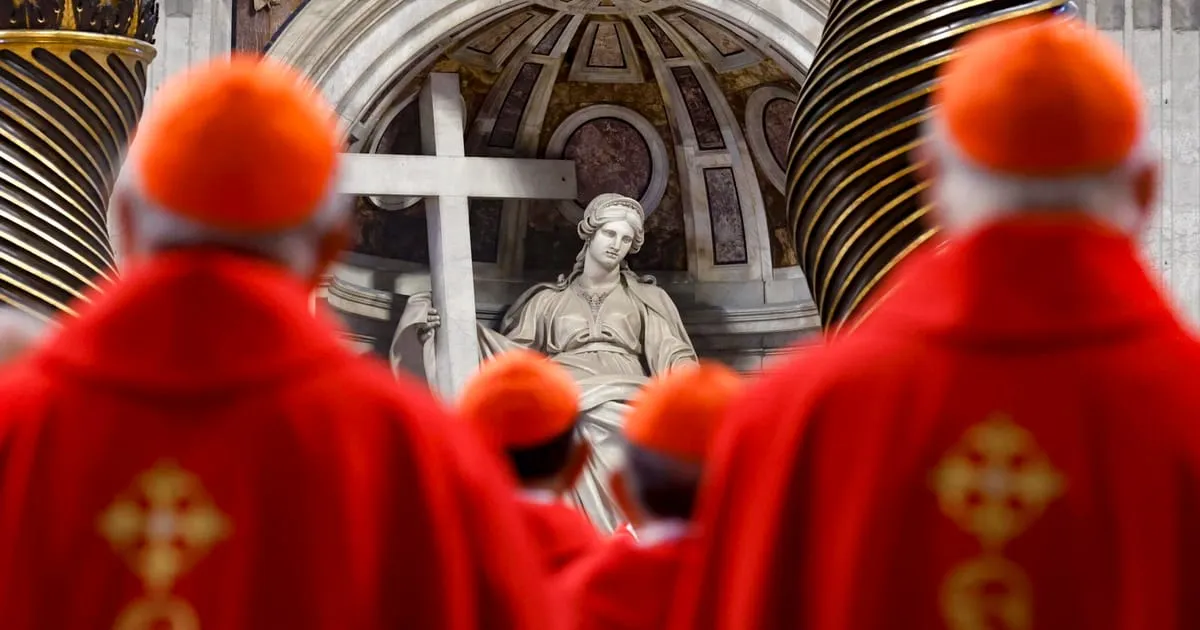
Since the passing of Pope Francis on April 21, 2023, approximately 180 cardinals have convened each morning in a Vatican City assembly hall. Seated in rows of high-backed wooden chairs, these cardinals engage in discussions about the future of their 1.4 billion-strong global religion. The assembly is presided over by a hard-of-hearing 91-year-old cardinal, whose inadvertent commands often add a peculiar dynamic to these sessions. While they share respectful comments about the late pontiff, underlying tensions regarding his controversial 12-year reign are palpable.
As one participant in these general congregations noted, “Everyone is very respectful, but you have to know the situation to understand what’s hidden behind the words.” The discussions, which serve as crucial lobbying sessions ahead of the conclave starting on May 7, reveal that many cardinals, while publicly praising Pope Francis, subtly express dissatisfaction with his leadership style. Phrases like “He was a good pope” are often followed by calls to remember the broader tradition of the Church, indicating a reluctance to fully endorse his legacy.
The upcoming conclave is unfolding amidst the backdrop of U.S.-style culture wars, with a noticeable divide between conservative factions and those advocating for LGBTQ+ acceptance. However, the tensions among the clergy extend beyond mere ideological differences; they also center on the future of ecclesiastical power within a Church that is rapidly expanding beyond its traditional European stronghold.
Pope Francis notably shifted the geographical balance of the Church during his papacy by appointing 50 cardinals of voting age from regions previously overlooked, such as Bridgetown in St. Lucia and Bogor in Indonesia. This approach not only diversified the cardinalate but also sidelined leaders from major dioceses like Los Angeles and San Francisco. Furthermore, the pope initiated a series of global consultations, known as synods, addressing significant issues like same-sex blessings and remarriage for divorced individuals. These efforts aimed to involve laypeople and clerics from emerging Church communities, particularly in Africa and Asia, in the decision-making process.
Despite his intentions, these synodal consultations have led to a fragmentation of theological implementation and reduced the power of the Curia, the Vatican bureaucracy. One of Pope Francis’ final acts was extending these deliberations for an additional three years, a decision that has sparked debates about its implications for Church governance. According to sources familiar with the discussions, the ideological struggle surrounding these reforms is coalescing around Pietro Parolin, the Holy See’s secretary of state and Francis’ longest-serving ally.
As the conclave approaches, Parolin has emerged as a figure of contention. His quiet assertion of leadership during Pope Francis' illness has bolstered his image among certain factions, while simultaneously raising suspicions among detractors who perceive him as a "Francis clone." Critics have highlighted his controversial dealings with the Chinese government and his oversight of a major Vatican ministry embroiled in a €200 million scandal in 2019.
Despite the criticisms, some cardinals view Parolin as a stabilizing force who has resisted the radical reforms of the synods. His potential candidacy gains traction among curial cardinals and influential figures, especially those who yearn for an Italian pope after a long absence of European leadership. However, this movement has unsettled the pro-Francis faction, which fears that Parolin would revert the Church to a less inclusive stance.
The push for Parolin is not indicative of his inevitable success in the conclave, which is notorious for its unpredictability. The debate surrounding the primacy of the Holy See is just one of many contentious issues facing the cardinals, including tolerance for LGBTQ+ individuals, the ordination of women, and the Vatican's ongoing financial challenges. Some insiders suggest that Parolin’s appeal may be waning, particularly after a lackluster public appearance.
Ultimately, support for Parolin might reflect a broader desire for an alternative leadership style that aligns with established power structures while also addressing the Church's contemporary challenges. For many clergy, the notion of a Church operating without the influence of Rome is as unacceptable as the idea of a pope who does not adhere to the core tenets of Catholicism.